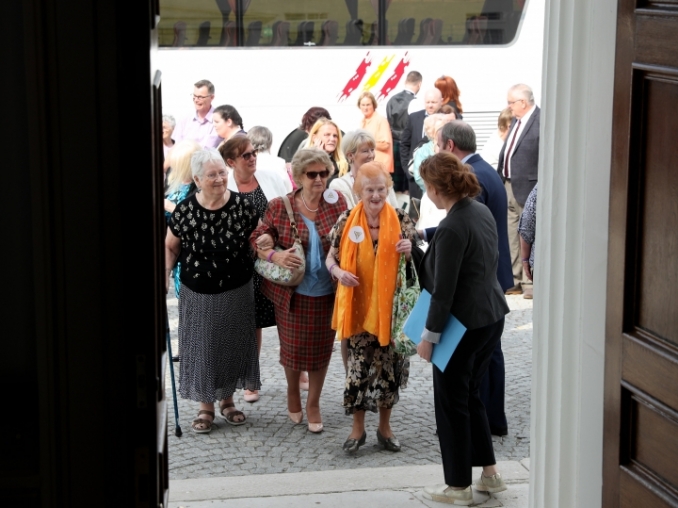Irish President apologises to survivors of notorious Magdalene Laundries
Irish President Michael D Higgins has apologised to thousands of women forced to work in the country's Magdalene Laundries. The Magdalene Laundries were also known as Magdalene asylums. These institutions were usually run by Roman Catholic orders but were supported by the state. It has been estimated that over 10,000 were confined in these prison like institutions in Ireland. They housed so-called. "fallen" women who were branded as both a mother and a criminal if they happened to have a child outside of marriage. At the time there was no social welfare provision and many women had little choice but to go into these mother and child homes. In 1993, a mass grave containing 155 corpses was uncovered in the convent grounds of one of the laundries, leading to media revelations about the operations of these closed institutions. The last Magdalene asylum, in Waterford, did not close until 1996.
Hundreds of people in Dublin turned out to welcome home the Magdalene survivors. Arriving by Garda escort, the 220 women and their families were given a rapturous reception. Amongst the survivors were included those who emigrated to the UK, USA and Australia. Yesterday Irish President Michael D Higgins said at an event organised for the survivors: “I apologise to you, survivors of the Magdalene regime.
“Ireland failed you. When you were vulnerable and in need of the support of Irish society and its institutions, its authorities did not cherish you, protect you, respect your dignity or meet your needs and so many in the wider society colluded with all that through their silence.”
Speaking ahead of the event Elizabeth Coppin told her story on RTÉ’s Morning Ireland. Her mother was just 19 when she gave birth at the county home in Killarney in 1949. Because she wasn’t married, her baby was taken away from her. Elizabeth spent most of her childhood in an industrial school, before being sent to three different Magdalene laundries. She recounted the abuse that she had suffered at the hands of the nuns who ran the institutions. She went on to say:
"I can’t believe I’m sitting here, and actually going to meet the President. All the women, we were incarcerated illegally, arbitrary detention by the Irish State and the church, to actually feel that we can voice our opinions on how we were treated."






